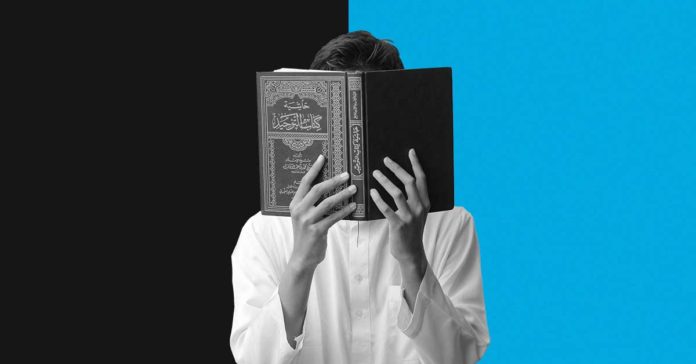Having noticed that my ‘self’ values and appreciates knowledge, and hence it gives knowledge the priority over everything else, it abides by the existence of evidence (in order to perform any action). Learning and teaching this religious knowledge has been given preference over other supererogatory acts (nawafil) of worship.
Questioning the accuracy of such a position, I, myself, defended its stance in this regard and so forwarded the following argument; The proof that knowledge is more superior; more virtuous than all other supererogatory acts of worship, is that most of whom, you know, who opt for supererogatory praying and fasting, overlook learning the knowledge, which results in a damage in their fundamentals. This has sufficed me to know that I am upon the right path and following the correct view. However, seeing how my ‘self’ is all-focused on knowledge [without looking into its purpose] enticed me to question and warn it; by saying:
“What beneficial impact has having this knowledge had on you?
Why is the sense of fearing Allah not growing? Why do you seem to have no distress about the Hereafter?
Why do you seem to not have any sort of cautiousness regarding our final destination?
Have you not heard of the stories and news of the tireless endeavours and worship of the good worshippers of old times?
Did you not know that the Messenger of Allah (ﷺ) is the master of all beings but still he prayed all night until his feet were swelling?[1]
Did you not know that Abu Bakr (radiyAllahu ‘anhu) was known for his excessive weeping when praying?
Did you not know that ‘Umar Ibn al-Khattab (radiyAllahu ‘anhu) had two dark lines on his cheek from the amount of tears he cried?
Did you not know that ‘Uthman Ibn ‘Affan (radiyAllahu ‘anhu) used to recite the entire Quran in one unit of prayer (rak’ah)?
Did you not know that ‘Ali (radiyAllahu ‘anhu) used to weep at night while he was praying in his niche until his beard became all wet while saying, ‘O worldly life, you may tempt someone else but not me?’
Did you not know that al-Hasan al-Basri lived all his life being worried about his Hereafter?
Did you not know that Sa’id Ibn al-Musayyab was a patron in the Masjid and so he did not miss a congregational prayer (salah) in the Masjid for forty years?
Did you not know that al-Aswad Ibn Yazid In Qais al-Nakha’i [from the Tab’in] used to fast until his skin colour changed and became yellow?
Did you not know that when the daughter of al-Rabi’ Ibn Khaytham asked her father: ‘Why do I see people sleep at night while you are still awake?’ He answered, Your father fears the punishment of grave.’
Did you not know that Abu Muslim al-Khawlani used to hang a whip on the wall of the Masjid to alert himself with it lest he felt lazy while praying?
Did you not know that though Yazid al-Ruqashi fasted forty years, he kept saying,’
Woe to me, the worshippers are still ahead of me?’
Did you not know that al-Mansur Ibn al-Mu’tamir fasted for forty years?
Did you not know that Sufyan al-Thawri used to cry blood because of his fear of Allah?
Did you not know that Ibrahim Ibn Adham used to urinate blood because of his fear of Allah?
Did you not know the supreme level of worship and asceticism of the four well-known Imams; Abu Hanifah, Malik, al-Shafi and Ahmad?”
So, beware of occupying yourself with knowledge while neglecting acting upon it because this is indeed the state of those suffering permanent laziness.
[Captured Thoughts by Ibn Jawzi, p. 195-197]
Notes:
[1] Bukhari, #1130 and Muslim, #2819 on the authority of Mughara Ibn Shubah (radiyAllahu ‘anhu)









